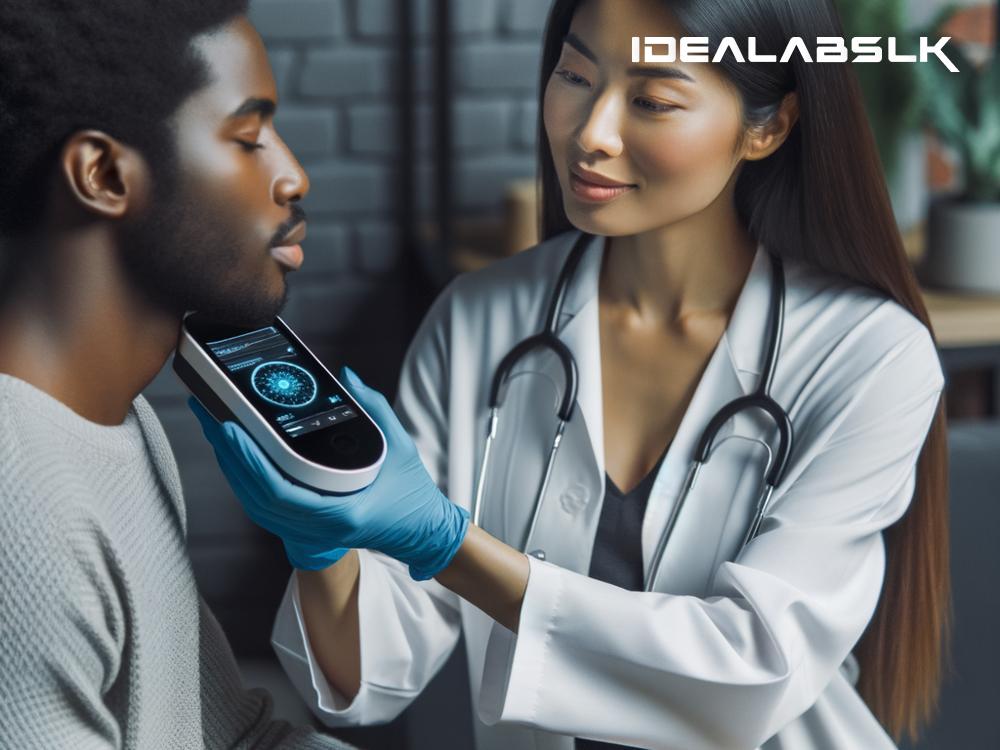How AI is Revolutionizing Diagnostics in Portable Health Tech Devices: A Simple Guide
In recent years, Artificial Intelligence (AI) has become a game-changer in many industries, and healthcare is no exception. One of the most exciting developments is the role of AI in automating diagnostics through portable health tech devices. But what does this actually mean for us? Let's break it down into simpler terms and explore how AI is transforming the way we monitor and manage our health.
Understanding AI in Healthcare
Firstly, let's get our heads around what AI in healthcare really means. Imagine having a super-smart friend who's read all the medical books in the world and can analyze tons of information in a blink of an eye. That's kind of what AI in healthcare is like. It's a powerful computer system that's been taught how to recognize patterns, understand complex data, and even make predictions, just like a top-notch doctor might.
The Rise of Portable Health Tech Devices
Now, combine this smart AI with the latest portable health tech devices - gadgets you can wear or use easily at home, like smartwatches, fitness bands, or even small handheld devices designed to monitor your health. These aren't just gadgets that count your steps or check how you slept last night. They are becoming sophisticated tools capable of detecting early signs of health issues, sometimes even before you notice any symptoms.
How AI Powers These Devices
So, how does AI fit into these devices? Essentially, AI acts as the brain of these gadgets. Here's a simplified view of how it works:
-
Data Collection: First, these devices collect data. For example, a smartwatch might monitor your heart rate, blood oxygen levels, or even stress levels throughout the day.
-
Data Analysis: The data by itself might not tell you much. This is where AI jumps in. It analyzes this data, looking for patterns or signs that might indicate something about your health.
-
Insights and Recommendations: After analyzing the data, AI can provide insights or even recommend actions. Maybe it notices that your heart rate is higher than usual, suggesting you might be stressed or need to rest.
Examples of AI in Action
Let's look at some real-world examples of how AI is automating diagnostics in portable health devices:
-
Heart Monitoring: Some smartwatches now can alert you if they detect irregular heart rhythms, which could be signs of conditions like atrial fibrillation. They do this by continuously monitoring your heart rate and using AI to analyze the data.
-
Blood Sugar Levels: For people with diabetes, there are portable devices that monitor blood sugar levels in real-time, sending alerts when levels are too high or too low. AI helps in predicting blood sugar spikes or drops based on food intake, activity level, and other factors.
-
Stress and Mental Health: Certain fitness bands and apps use AI to gauge your stress levels by analyzing your heart rate variability. They can suggest breathing exercises or mindfulness activities to help manage stress.
The Benefits of AI-Driven Diagnostics
The combination of AI and portable health tech devices offers several benefits:
- Early Detection: By continuously monitoring health metrics, these gadgets can detect potential issues before they become serious.
- Personalized Healthcare: Since everyone’s body is unique, AI can help tailor health advice and management plans to individual needs.
- Convenience: These devices make it easier for people to monitor their health without always needing to visit a doctor.
Challenges and Considerations
While the potential is huge, there are still challenges to consider, such as privacy concerns and ensuring these devices are accessible to everyone, not just those who can afford the latest gadgets. Also, it's important to remember that while AI and portable devices can provide valuable health insights, they don't replace professional medical advice and diagnosis.
Looking Ahead
As technology continues to advance, the role of AI in portable health tech devices is set to grow even further. We're looking at a future where these gadgets could help manage chronic conditions, detect diseases at their earliest stages, and even possibly predict health issues before they arise, all thanks to the power of AI.
In simple terms, AI is like having a doctor in your pocket, one that's learning and adapting all the time. It’s an exciting time for healthcare technology, and we’re just scratching the surface of what’s possible.

